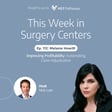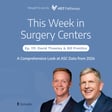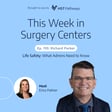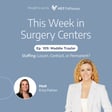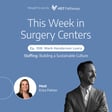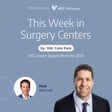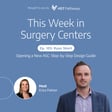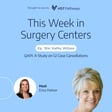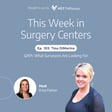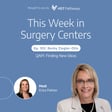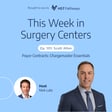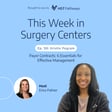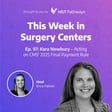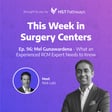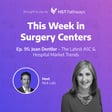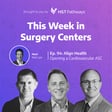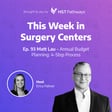
Dr. Grunch – Using Social Media to Influence Your Bottom Line
Dr. Betsy Grunch is a highly talented board-certified neurosurgeon based in Georgia, and if that isn’t impressive enough, she also happens to be a social media influencer who shares her content with millions of followers across TikTok, YouTube, Facebook, Instagram, and LinkedIn under the name LadySpineDoc. She joins us on this week’s episode to talk about how her use of social media has helped increase her case volume, the pros and cons of having such a large following, and how other healthcare professionals can get started.
In our news recap, we’ll cover a former nursing school president who awarded 7,600 fake diplomas, a crisis amongst rural hospitals, the impact of weekend warrior activity on heart health, and of course, end the news segment with a positive story about new lollipop testers that can detect strep throat and other illnesses.
Articles Mentioned:
Former nursing school president sentenced to 21 months for awarding 7.6K fake diplomas
More Than 30% of Rural Hospitals Are at Risk of Closure, Report Warns
Does a ‘weekend warrior’ physical activity pattern prevent cardiovascular disease?
Lollipop Testers Detect Illness and 'Sweeten' Diagnosis
Brought to you by HST Pathways.
